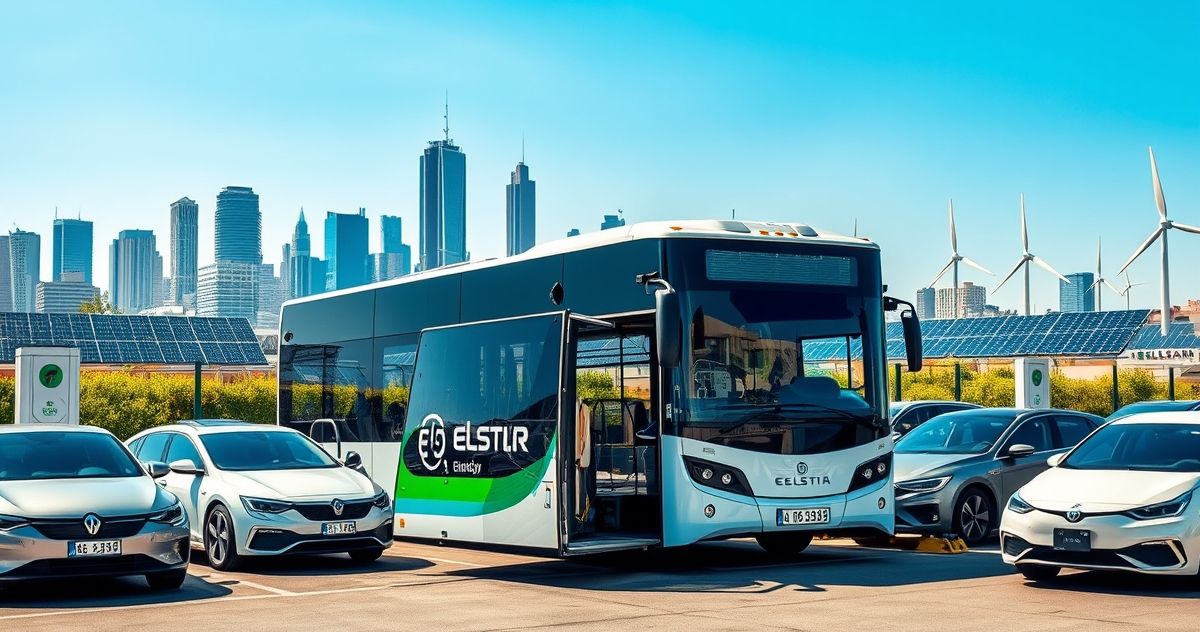Understanding the Electric Bus and Fleet Credit
The Electric Bus and Fleet Credit is a tax incentive designed to encourage businesses to transition to electric-powered transportation. This credit is part of a broader effort to reduce carbon emissions and promote sustainable energy solutions in the commercial sector. By providing financial incentives, governments aim to offset the initial high costs of electric vehicles (EVs), making them an appealing choice for companies looking to renew or expand their fleets.
Primary Purpose of the Electric Bus and Fleet Credit
The primary goal of this tax credit is to expedite the adoption of eco-friendly transportation options. The shift from traditional fuel-powered buses and fleet vehicles to electric alternatives is crucial as it contributes to reducing greenhouse gas emissions, improving air quality, and fostering sustainable growth in the transportation sector. The credit effectively reduces the financial burden associated with purchasing electric buses and other fleet vehicles, making them more competitive with their diesel and petrol counterparts.
Key Features and Components
- Eligibility Criteria: Businesses must meet specific eligibility requirements, which can include purchasing new electric buses or upgrading existing fleets to electric ones. The criteria often vary based on the governmental body issuing the credit but generally include stipulations about vehicle size, usage, and efficiency standards.
- Credit Value: The credit value typically depends on factors such as the vehicle’s weight class, battery capacity, and its role within the fleet. Larger vehicles or those with higher battery capacities often qualify for higher credits.
- Application Process: Businesses need to follow a structured application process to claim this credit, which involves paperwork detailing the purchase, specifications of the vehicle(s), and any other relevant documentation.
- Integration with Other Incentives: Often, the Electric Bus and Fleet Credit can be combined with other local or federal incentives, maximizing the benefits for businesses switching to electric fleets.
Relevant Filing or Compliance Requirements
Businesses must adhere to specific compliance and filing requirements to qualify and retain eligibility for the Electric Bus and Fleet Credit. Documentation is crucial and typically involves the following:
- Purchase Documentation: Proof of purchase is required to validate the acquisition of eligible electric vehicles.
- Compliance with Regulations: The vehicles must meet environmental and efficiency standards as outlined by the governing tax or environmental body.
- Annual Reporting: Some credits require businesses to report their fleet usage and performance annually to ensure ongoing compliance and effectiveness of the incentive.
Penalties or Consequences for Non-compliance
Non-compliance with the requirements associated with the Electric Bus and Fleet Credit can lead to several penalties. These may include:
- Repayment of Credits: Successful audits revealing non-compliance or misuse of funds can result in the obligation to repay the credit amount.
- Fines and Interest Penalties: Additional fines or interest can be imposed for incorrect filings or misrepresentations of compliance.
- Future Ineligibility: Businesses found exploiting or improperly claiming the credit may face restrictions or bans from future participation in similar programs.
Importance and Significance
The Electric Bus and Fleet Credit is instrumental in shaping modern transportation by propelling it towards sustainability. For businesses, it represents a significant opportunity to reduce operational costs through fuel savings and lower maintenance expenses associated with electric vehicles.
Moreover, using EVs aligns with corporate social responsibility goals, enhancing brand reputation among increasingly eco-conscious consumers. From a macroeconomic perspective, this credit supports national and international environmental targets, contributing to broader initiatives like the Paris Agreement goals of reducing carbon footprints globally.
While the initial costs and regulatory hurdles can be challenging, the long-term benefits of improved air quality, reduced carbon emissions, and sustainable resource management underscore the vital role of the Electric Bus and Fleet Credit in guiding the shift to an eco-friendly future.
In conclusion, the Electric Bus and Fleet Credit is more than just a tax incentive; it’s an essential component in the global endeavor to promote sustainability in transportation. With careful implementation and adherence to compliance requirements, this credit can significantly ease the transition to greener transport solutions for businesses worldwide.

